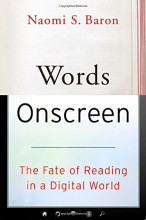Annie Zhou
Posts tagged with education
Showing 1 - 10 of 22 items

Annie Zhou, a second-year master’s student in Educational Studies, explores culturally responsive teaching and what constitutes "good teaching".

On April 2nd, 2025, ten delegates from the University of Michigan's Society of Women Engineers (SWE) chapter traveled to Washington, D.C., to participate in SWE’s annual Congressional Outreach Day. Through representing the voices of countless women and marginalized individuals who are often excluded from governmental conversations, U-M SWE members endorsed a targeted list of federal legislative priorities and funding requests to ensure the success of marginalized groups working in STEM.
Learn how a humble student shelver in the Hatcher Library was inspired by her love of libraries and the opportunities she had as a UM student in the 1950's.

Curious about which university classes are incorporating games into their studies? Here is a list of game-related classes happening this semester.

In Reader, Come Home: The Reading Brain in a Digital World, Maryanne Wolf discusses the impact of reading digital content on the neural processing in the brain, deep reading, and empathy, among other topics.

In this book, Michigan State University School of Journalism students cover a range of topics related to faculty behavior that can be stumbling blocks for student learning and civil discourse on today's diverse campuses.

Ever wonder about the myriad decisions and changes colleges students go through during their four or so years? Practice for Life: Making Decisions in College helps answer those questions.

Naomi Baron, Professor of Linguistics and Executive Director of the Center for Teaching, Research & Learning at American University in Washington, DC., discusses reading and how it has changed in the age of digital content.
•
If you are a student here at the University of Michigan, there are a couple of new video game-related courses being offered:For Summer 2013:COMM 488-201, SAC 455-202 - Video Games, Culture, & Contexts This course takes as its focus the cultural impact of video games from a number of critical perspectives. Just as movies and television have a rich history, video games develop out of a number of social, economic, and technological structures. We will examine video games as cultural texts that are part of a complex, cultural landscape—objects revealing much about cultural anxieties, ideologies, and assumptions. We will analyze a number of video game texts, ranging from early arcade style games, to console games, to PC games, to games for mobile phones. A range of genres within these game texts will be discussed, such as first person shooters, massively multi-player online games, and casual games—unpacking both the formal aspects of the game and the underlying meaning of game narratives. How and by whom are video games produced, how does the industry market particular games to its perceived audience, who plays games and why, and what is so serious about “serious” games? We will draw from a range of methodological and theoretical texts within the field of game studies: critical cultural, ethnographic, media effects, industrial, and historical. (Instructor: Julia Lange) And for Fall 2013:MUSPERF 300 - Video Game MusicThis course surveys game music from the first synthesized "bleeps" and "bloops" to modern orchestral compositions. Techniques are learned to aurally analyze game music. Students will create compositions using computer software as a final project. Course is designed for non-music majors; the ability to read standard music notation is not needed. (Instructor: Matthew Thompson)
•
Coursera, a website that teams up with professors from various universities to offer free online courses to the public, is offering an introductory course on gamification, a concept that is gaining speed quickly. The course begins this week. This is reportedly one of the first courses designed specifically for the concept of gamification, and the course itself is partly designed to explore the meaning and purpose of the concept, as well as to generate ideas on how to apply it in relevant ways. Read more about the course here.